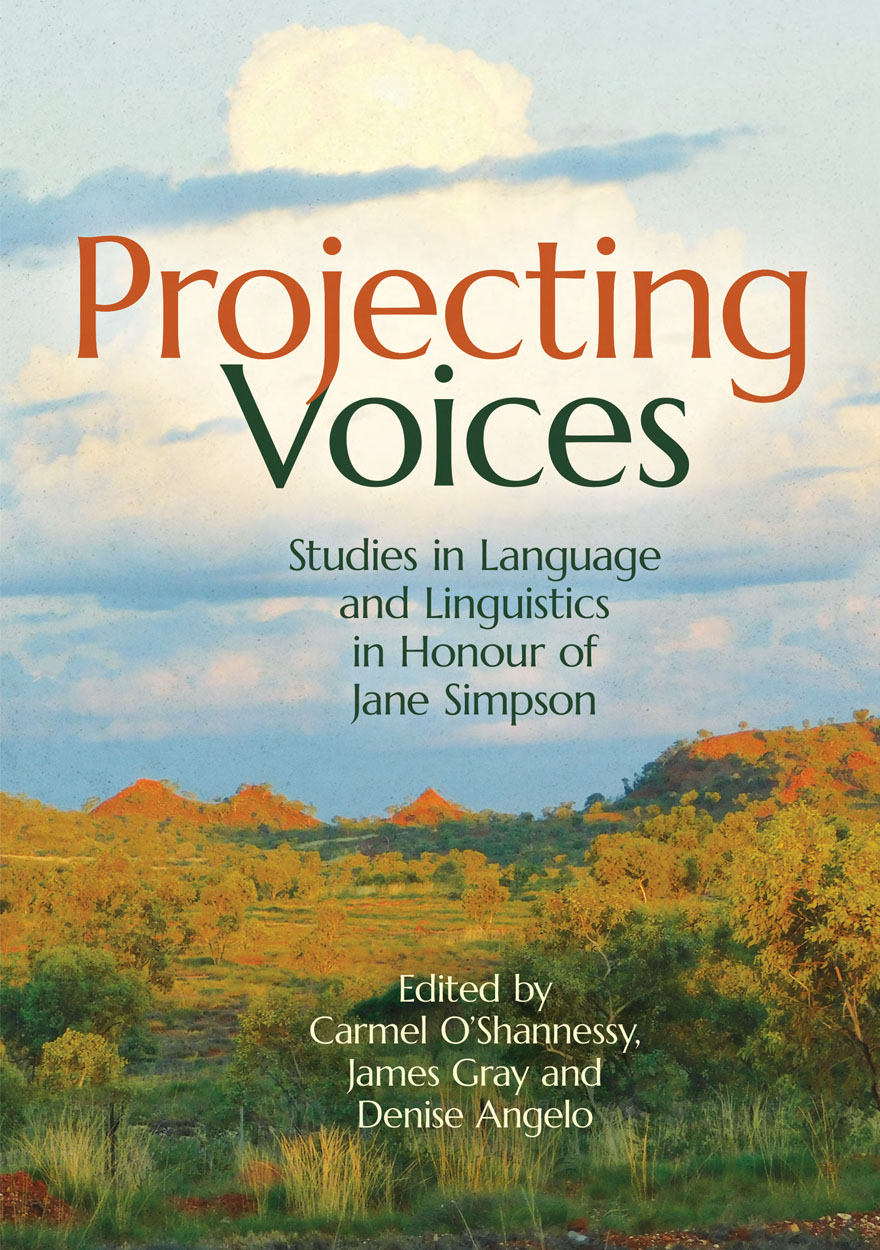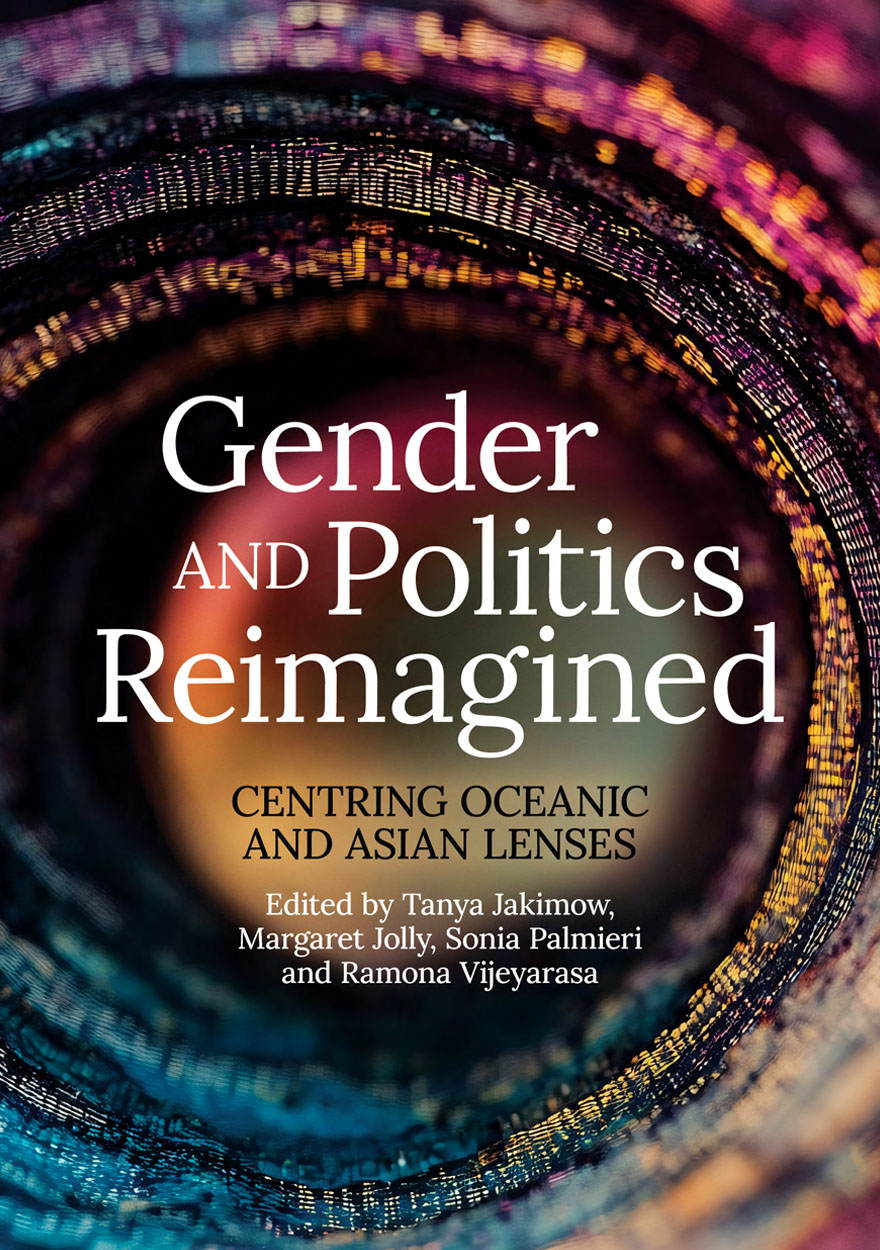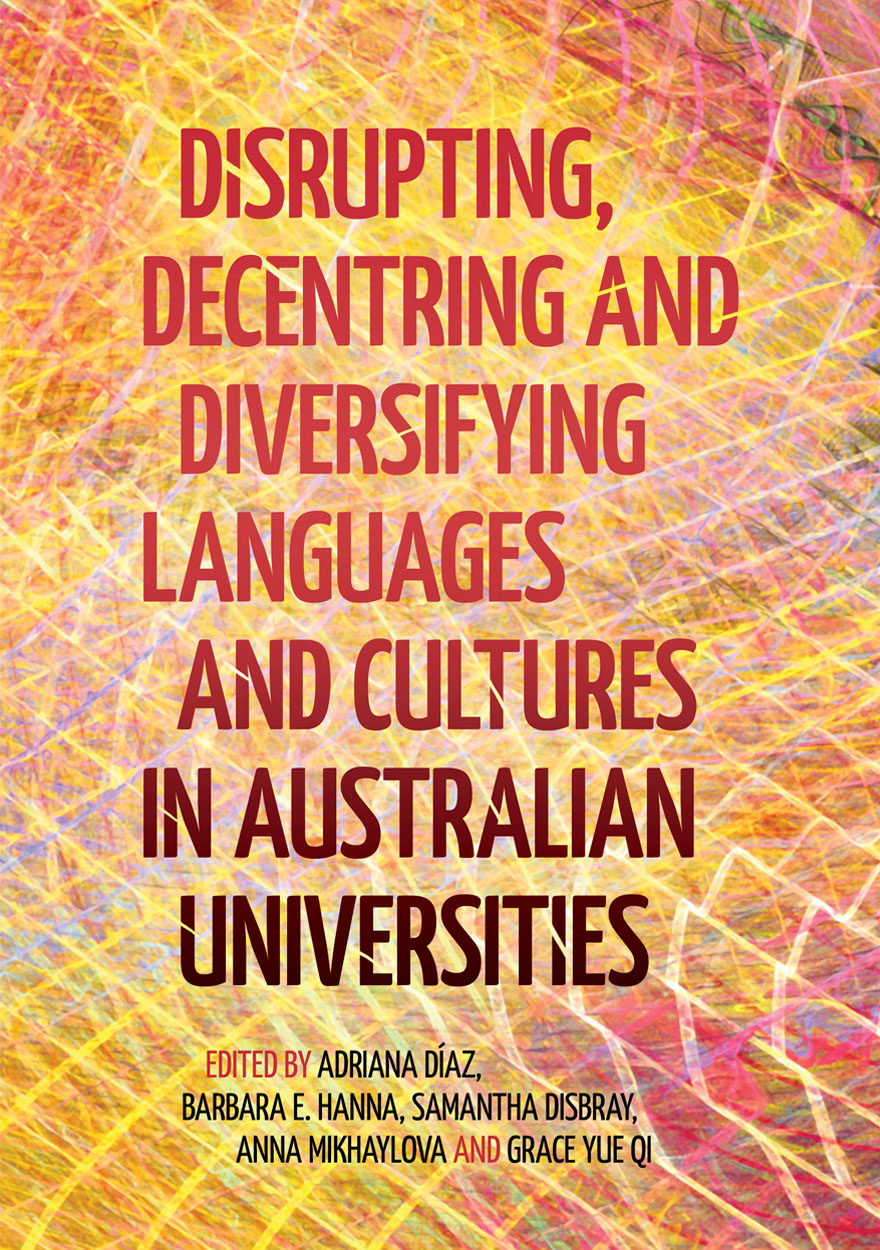Books
Browse or search ANU Press' range of books or find out more about the publications' authors and co-publishers. Download the book for free or buy a print-on-demand copy.
Displaying results 1 to 10 of 790.

Law in the New Democracy »
Authored by: Paula Jane Byrne
Publication date: January 2026
In the 1850s, opposition to the Crown in New South Wales made for unsteady ground for the administration of criminal law. This study of skirmishes between magistrates, constables and the metropolis reveals just how far understandings of law could be stretched and warped by recalcitrant local populations. At Carcoar, the local population entirely controlled how law worked; on the South Coast, ‘the people’ influenced how law intervened in their lives; in the north west of the colony, publicans dominated; on the north coast, violence against First Nations/Aboriginal people was forcibly meshed into the day to day working of the courts. This study shows a ‘frontier’ centred on the coasts and in the minds of legal officials of the metropolis, but elsewhere, some recognition of the Aboriginal polity and an early understanding of Aboriginal rights.
With right of reply by First Nations/Aboriginal people

Projecting Voices »
Studies in Language and Linguistics in Honour of Jane Simpson
Publication date: December 2025
This volume provides cutting-edge research on a wide range of questions in linguistics research, mostly centred on Australian Indigenous languages. Written by world-leading experts, the chapters take a fresh look at current questions in each topic, inspired by the work of Australian linguist Jane Simpson.
The chapters have implications for linguistic theory in the areas of historical linguistics, morphosyntax, semantics, the lexicon, language acquisition and issues in languages in education, and renewal of endangered languages.
This volume is essential reading for students and experienced researchers alike, with interests in theoretical and applied linguistics, especially in topics and issues related to Australian Indigenous languages.

Gender and Politics Reimagined »
Centring Oceanic and Asian Lenses
Publication date: December 2025
This timely collection reflects a coming together of academics, gender and development practitioners and activists to reflect on the gendering of politics. By centring Asia and Oceania and traversing numerous disciplines, the volume disrupts the illusion of certainty and clarity as to what is known about gender and politics. Individual chapters present specific research projects, while providing epistemological, theoretical and methodological reflections on how knowledge is produced and by whom, challenging the existing canon. The contributions collectively demonstrate the possibilities for theorising from Asia and Oceania to address the lack of diversity in political representation and leadership on a global scale, in which gender, race, class, caste, (dis)ability and sexual identity are powerfully interconnected.
Arising out of the Gender and Cultural Diversity in Politics: Australia, Asia and the Pacific workshop held at The Australian National University in 2022, this collection underscores the importance of fostering scholarship and mentorship in the academy. The diversity of authorship encompasses differences in ethnicity, nationality, sexuality and career stage, with an emphasis on the inclusion of authors from various Oceanic and Asian countries. The volume promotes academic practice as integral to social change, and social action as a form of knowledge production. As such, Gender and Politics Reimagined is sure to be a cornerstone in future scholarly and activist discussions.
Format: Hardback

The Great Energy Transformation in China »
Edited by: Ligang Song, Yixiao Zhou
Publication date: November 2025
In 2020, China started the drive to commence a reduction in carbon emissions by 2030 and reach carbon neutrality by 2060, setting in motion a transition to a green, sustainable and clean economy. China has ambitiously developed clean energy alternatives to coal. This transformation encompasses multifaceted strategies ranging from investment in renewable energy and the development of low-emission technologies to more stringent policy regulations on emissions. Renewable energy sources like hydroelectric power, wind, solar and biomass have received substantial attention and investment, with China emerging as a global leader in renewable energy capacity.
In the technology space, China’s transitioning to electric vehicles (EVs) has catalysed the development of a robust EV market, fostering innovation in battery technology and charging infrastructure. China has now become the largest exporter of EVs in the world market. These developments have the potential to materially help curb the world’s carbon footprint and mitigate environmental degradation.
Nevertheless, challenges persist domestically, including the need for grid modernisation to accommodate intermittent renewable energy sources and addressing the socio-economic impacts on coal-dependent regions. In the international market, China’s efforts towards a cleaner and more sustainable energy landscape have helped position it as a leader in sustainable economic development. This could enhance trade of green products, the development of global renewable energy and international investments in energy transformation. However, global trade and investment in green technologies and products are faced with rising geopolitical tensions and trade protectionism. This book discusses China’s achievements in its transition towards renewable energies and identifies new opportunities and challenges for deepening energy transformation in China.

Disrupting, Decentring and Diversifying Languages and Cultures in Australian Universities »
Publication date: November 2025
How can languages and cultures in Australian higher education be disrupted, decentred and diversified? Contributors to this volume advance theoretical, critical (self-)reflections and position papers, pedagogical explorations of classroom practice as well as data-driven empirical investigations to challenge, resist and stretch how languages and cultures are both taught and imagined in research.
From metaphorical conceptualisations of knowledge production, discussions of virtual reality, and innovation and creativity viewed through the lens of Indigenous epistemologies, to language learning curricula designed to challenge heteronormativity and cisgenderism, and a reconceptualisation of the role of language educators as designers, each chapter emphasises the vital role of innovation as the driving force of positive disruption.
What emerges here is the resilience and adaptability demanded of languages and cultures researchers and educators as they navigate an ever-shifting educational landscape. Taken as a whole, this volume serves as a testament to these scholars’ collective capacity to adapt, evolve, embrace and actively drive change, fostering a more diverse, equitable and inclusive future for their field.

Deeper, Strategic Collaboration in the Securities Sector »
India and Australia
Authored by: Sonia Khosa
Publication date: September 2025
In an era of globalised finance and increasing cross-border activity, regulatory cooperation has become essential for market integrity and development. This book examines the potential for strategic collaboration between India and Australia in the securities sector—two nations with distinct but complementary economic and legal frameworks. Through a comparative analysis of the Securities and Exchange Board of India (SEBI) and the Australian Securities and Investments Commission (ASIC), it evaluates alignment with International Organization of Securities Commissions (IOSCO) principles, focusing on supervisory powers, enforcement mechanisms and compliance effectiveness. The analysis identifies shared regulatory goals and governance principles, highlighting opportunities for bilateral cooperation.
Offering a roadmap for capital market integration and regulatory innovation, the book makes a timely contribution to international financial scholarship. It delivers practical insights for policymakers, legal scholars and regulators interested in forging resilient cross-border partnerships—both within the Indo-Pacific and beyond.
Winner of ANU Press ECR Prize in Legal Scholarship
Format: Hardback

Rethinking Histories of Indonesia »
Experiencing, Resisting and Renegotiating Coloniality
Edited by: Sadiah Boonstra, Bronwyn Anne Beech Jones, Katharine McGregor, Ken M.P. Setiawan, Abdul Wahid
Publication date: August 2025
Rethinking Histories of Indonesia: Experiencing, Resisting and Renegotiating Coloniality provides a critical evaluation of histories of Indonesia from the formal period of colonisation to the present day. The volume approaches Indonesian history through the lens of coloniality, or the structures of power and control that underpin colonisation and which persist into the present. Bringing together seventeen authors from across the world, the volume offers an alternative conceptualisation of Indonesian history and lays bare the enduring legacies of and processes that reproduce coloniality.
‘This is a significant and exciting volume in terms of its scale, the range of disciplines, approaches and topics included and, ultimately, for its contribution to the field of Indonesian history and historiography, and Indonesian studies and decolonial studies more broadly … The contributors to this book do [a great service to] students of Indonesian history, its cultures, society and politics, offering new sources, voices, approaches and perspectives. Overall, they provide a fresh and vital critique of not only Indonesia’s colonial history but its continuing lived influences on present day Indonesia and beyond.’
—Jemma Purdey, Australia-Indonesia Centre, Monash University

Ink and Land »
Documenting Factionalism around a Prospective Mine in Papua New Guinea
Authored by: Willem Church
Publication date: August 2025
Ink and Land is an ethnographic account of political and legal struggles over landownership in Papua New Guinea, in which competing factions seek recognition as customary landowners of Wafi-Golpu, a major prospective copper-gold mine. Drawing on extensive archival research, oral histories, court documents and fifteen months of fieldwork, the book examines how different groups attempt to harness resource extraction for their benefit and how, in doing so, they reshape their social worlds through the medium of affidavits, court declarations and incorporation certificates. To analyse this process, the book advances the concept of antagonistic documentality—a form of conflict in which parties engage in conflicting world-building projects through and about documents and, in doing so, create an order of paper that outlasts the disputes themselves. Through this detailed case study, Ink and Land reveals how legal and bureaucratic battles over resource extraction in Papua New Guinea formalise factionalism, consolidate elite control over new sources of wealth, and redefine the nature of groups and landownership. By focusing on conflict over documents as a process of social transformation, the book offers fresh insights into the politics of land, law and resource extraction in the contemporary Pacific.

Struggle, Reform, Boom and Bust »
An Economic History of Papua New Guinea since Independence
Authored by: Stephen Howes, Martin Davies, Rohan Fox, Maholopa Laveil, Manoj K. Pandey, Kelly Samof, Dek Joe Sum
Publication date: July 2025
Since Papua New Guinea’s independence in 1975, economic growth has been slow but volatile, with major changes in economic structure and policies, as well as in politics and governance.
This economic history, written to commemorate the fiftieth year of independence and the first to be produced in some 15 years, divides the half century since independence into four periods: the relative stability but also early struggles of the seventies and eighties; the crises and reforms of the nineties; the boom of the 2000s; and the quiet bust of the 2010s. Two chapters cover each period’s major economic, policy, institutional and political developments. The final three chapters provide an overall assessment of economic performance and policies since independence and link them with its politics and institutions.
The book combines painstaking documentation with original analysis to reveal both the strengths and weaknesses of the PNG economy, and theorises that the country’s hyper-politics and insecurity have combined to produce, and are reinforced by, a weak but stable state, and low and increasingly resource-dependent growth.
Data-driven, frank, insightful and engaging, Struggle, Reform, Boom and Bust is written by an expert team of economists from the University of Papua New Guinea and The Australian National University under the leadership of Professor Stephen Howes, Director of the ANU Development Policy Centre. It is an essential resource for anyone interested in the economy of Papua New Guinea, as well as an important contribution to the literature on the challenges and institutional determinants of post-colonial development.

The Wild Australia Show »
The Story of an Aboriginal Performance Troupe and its Afterlives
Authored by: Paul Memmott, Maria Nugent, Michael Aird, Lindy Allen, Chantal Knowles, Jonathan Richards
Publication date: July 2025
The Wild Australia Show was a troupe of 27 Aboriginal performers recruited from northern Queensland in the 1890s for a world tour that would culminate at the World’s Columbian Exposition in Chicago in 1893. Those grand plans were ultimately dashed, and the troupe only performed in Brisbane, Sydney and Melbourne before disbanding. This book tells the story of the Wild Australia Show from its inception to its afterlives. It traces how the performers were recruited, the places they came from, the repertoire they created, rehearsed and performed, their experiences on tour and the politics of their representation in word and image. Drawing on an extensive archive of newspaper reports, government records, and court proceedings, richly complemented by photographs and other visual images, the authors seek to reconstruct the Wild Australia Show story from the perspectives of the performers themselves. The book contributes to a growing literature on the history of Aboriginal performers and performances under colonial conditions, and the ways in which public performance could be a means for cultural survival and resurgence.
Format: Hardback



